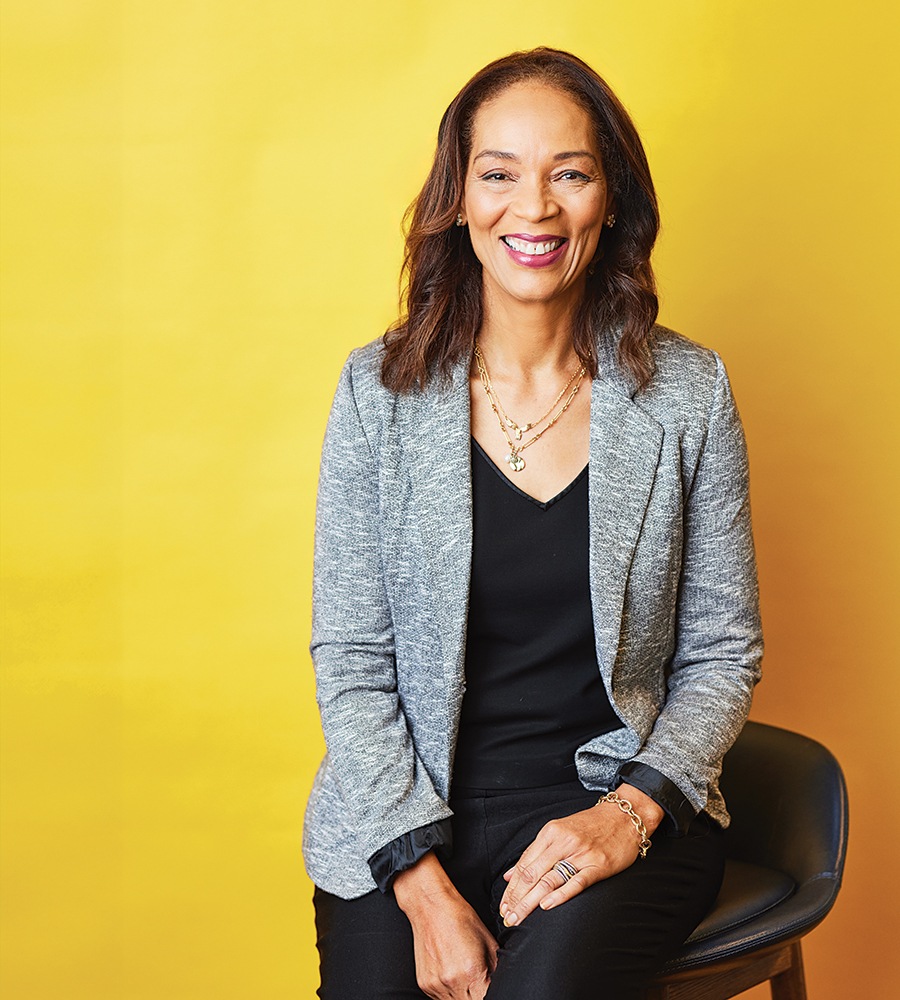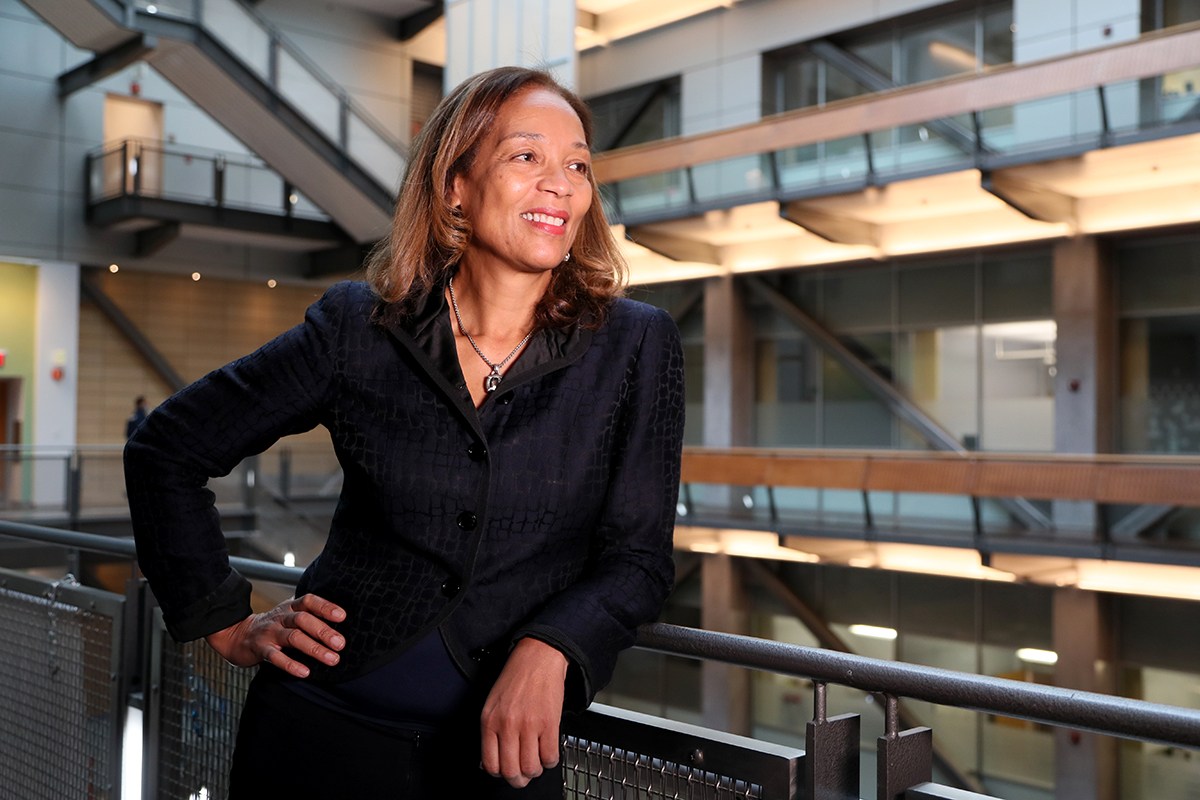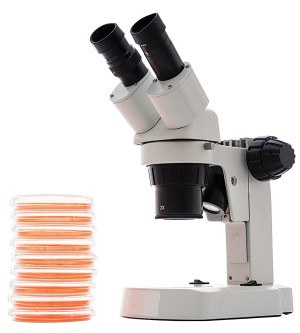The Interview: Biotech Leader and Alnylam CEO Yvonne Greenstreet
Boston’s life-sciences industry is saving lives, swooping up real estate, and making billions in the process. A few words from its latest visionary, Yvonne Greenstreet.

Portrait by Pat Piasecki
Wondering what Boston’s next miracle drug is going to be? There’s a good chance Yvonne Greenstreet will someday soon have the answer. As the CEO of the Cambridge-based pharmaceutical company Alnylam, Greenstreet oversees a team currently working to cure a whole host of genetic diseases. The road to Greenstreet’s current role included plenty of stamps in her passport: Born in London and raised in Ghana, the pharma exec worked as an OB-GYN in the U.K. before returning to school to earn her MBA. After moving across the pond in 2004, she worked at GlaxoSmithKline and Pfizer, ultimately joining Alnylam in 2016 before assuming the role of CEO in 2021.
- Meet Trump’s New Federal Prosecutor in Blue Massachusetts
- They Tried to Silence Her COVID Origin Theory. Now Even the CIA Agrees with Alina Chan.
- Playwright Mfoniso Udofia Might Like to Get a Drink From the ‘Bubbler’
- The Exit Interview: Jill Medvedow, Outgoing ICA Boston Director
- The New Boston University President Is a Renaissance Scholar’s Dream
Greenstreet took a break during a pharma conference in the U.K. to talk to us about being one of the only women of color leading a major pharmaceutical company, the next global pandemic, and dining next to possibly the most handsome man in the world.
Do you see Boston as an innovation hub?
Boston is the most exciting place in the world for biomedical innovation, and the data would attest to that in terms of the number of existing biotech companies, the number of companies that get founded every year in this region, and the amount of talent that we have in the region. It is by far the most exciting place for life sciences.
Still, life sciences is such a highly speculative industry. Are we just basically a high-brow Las Vegas?
No, I think that if you follow the science, and if you make decisions based on data, and if you focus on areas of important medical need, you are on a path to be able to deliver medicines.
Why did you stop practicing as an OB-GYN?
I really enjoyed my clinical practice. I loved seeing patients. But I wanted to explore whether I’d be able to have an impact on healthcare in a broader way, so I went off to do an MBA, and at the end of that period, I realized that my interests were in combining science, medicine, and business. And there was no better sector for me to do that than the biopharma industry.
Do you think you could still deliver a baby?
All of my family members still ask me for medical advice, so I guess I’m still useful in that capacity. In an emergency, and if there was nobody else who had any medical training around, I might be willing to give it a go, but I certainly wouldn’t seek out my medical skills in a delivery room. But obviously, I’m still very involved in medicine and how the field has evolved, from a diagnostic and therapeutic perspective, over the past couple of decades.
Does being an MD give you an advantage in your current line of work?
There are actually many physicians working throughout the biopharma industry, overseeing clinical trials, performing research, and more. Many physicians who join the industry hope to significantly expand their impact by developing new medicines that can help many more patients than they alone could help in their medical practice.
How about your British accent? Does that give you a leg up in the States?
Do I still have a British accent? [Laughs.]

Portrait by Pat Piasecki
Biopharma was essentially unheard of before COVID put it in the spotlight. How has that affected your industry?
The very rapid development of mRNA vaccines, which saved countless lives, helped the world see the enormous value of the biopharma industry and the extraordinary impact we can have in improving human health.
How does being a pharma CEO differ from being a CEO in other industries?
People with very serious diseases are counting on us. One of the great responsibilities for each of us working in the biopharma industry is to do our best every day to speed up the development of potentially lifesaving new medicines and to ensure that these medicines, once approved, reach all those who need them around the world.
What specific diseases is Alnylam aiming to cure?
We are focused on both rare diseases and more-prevalent diseases. Our approved medicines include treatments for four genetic diseases, including a severe form of high cholesterol. Looking ahead, we have a substantial group of potential new treatments in development, including for hemophilia, hypertension, Alzheimer’s disease, and type 2 diabetes.
Any unforeseen downsides to your company’s success?
Drug development is incredibly challenging, high-risk, and costly, and only a fraction of the potential medicines that companies work on ever make it through the development process and receive FDA approval. We are grateful for any success we may achieve.
How do you feel about FDA regulation and all of the processes the federal government requires when it comes to approving a vaccine or new drugs?
The FDA is a critical enabler in making sure that innovation appropriately gets received by patients, and what I will say here is that I am very supportive of a robust and consistent agency that is open to evolving its regulatory practices to ensure that we can bring important new innovations to patients.
Why do you think Ghana produces so many great thinkers and scientists?
Because there’s been a huge investment in education in Ghana after independence in 1957, and if you invest in the education of people from a young age and continue that investment through tertiary education, over time, you reap the benefits.
Thing you miss the most about Ghana?
My mother.
On a related note, is Idris Elba the handsomest man alive?
Other than my husband, yes. I was actually privileged to have dinner with Idris Elba, and I can attest that he looks very much in person the way he does on screen.
What’s your favorite medical movie or one that addresses a contagious disease?
[Laughs.] I made the mistake of taking my niece to see Outbreak during the COVID pandemic, and I think she’s still traumatized.

After five years of being chief operating officer, Dr. Yvonne Greenstreet became the CEO of Alnylam Pharmaceuticals in 2021. / Photo by Suzanne Kreiter/The Boston Globe via Getty Images
What’s the pathogen you fear the most or that you think the general public should fear the most?
The pathogen that’s going to cause the next pandemic, but what that might be we don’t know.
Greatest medical breakthrough of the past 25 years?
We have seen many extraordinary advances in medical science over the past two decades. These include the mapping of the human genome, which has unlocked new ways to treat and prevent disease; the development of targeted therapies and immunotherapies for cancer; the development of highly effective combination therapies for HIV; and the creation of mRNA-based vaccines, which helped the world respond rapidly to the COVID-19 pandemic. Certainly, I would include the discovery of RNA interference, or RNAi, the basis for Alnylam’s founding, which was recognized with the 2006 Nobel Prize in Medicine or Physiology.
How do you explain RNAi to a scientific dunce like me?
Your cells make molecules called proteins that play many critical roles in your body. RNAi therapeutics interfere with the production of proteins that cause specific diseases, thereby halting or possibly even reversing disease. Unlike many other types of medicines, it targets the root cause of disease rather than treating the symptoms.
Were you surprised or not when your former employer, Pfizer, turned out to be one of the saviors of the COVID pandemic?
I was incredibly proud of the focus and commitment that Pfizer brought to helping address the COVID pandemic. I was not surprised that they were able to apply their robust capabilities to bring the vaccine to market.
Any thoughts on the criticism that a lot of people leveled at the COVID vaccine, or on anti-vaxxers in general?
I think the COVID vaccines have been an important contribution to humanity. I’m currently at a conference in person, being able to meet with so many life-science professionals from around the world, and there’s no way I would have been able to be here in person without being inoculated.
Thoughts about the U.S. healthcare system versus the U.K.?
I’ll just say it’s complicated and leave it at that.
Any opinion on the explosion of lab space in Boston as a means to address the empty office space left by COVID? Is that something you see as sustainable?
Well, lab space is a critical requirement for building life-sciences companies, and I think the fact that Boston has such high-quality laboratory space continues to make it a magnet for companies that want to build their businesses here.
Is there any reason for concern about the safety of labs in urban settings?
If there’s appropriate oversight of the laboratory space, then it’s not a factor that concerns me.
Best perk of your job?
Two things, if I may say. Having the opportunity to help bring transformative medicines to patients based on our RNAi technology; the second is meeting so many interesting people around the world. It’s very exciting to learn from them.
The most odious or challenging part?
Managing the time that I spend away from home.
Can you get a dinner reservation at any restaurant in Kendall Square?
I can’t, but my executive assistant can.
What would you say your greatest strength is as a CEO?
I guess if I were to ask other people they would say bringing in diverse voices, actively listening to different perspectives, and using those views to come up with the best possible solutions.
What would you say are the qualities of a really great leader?
Someone who can inspire other people to be the best that they can be.
How many other women of color are CEOs of major drug companies?
The only one I’m aware of is Reshma Kewalramani at Vertex.
There has to be a whole host of challenges and issues that come along with that, but is there one that you could single out as something that you’d like to see changed?
I think opening up the aperture as to what we envisage CEOs to look like and for that to be okay.
In your experience, what’s the biggest difference between doing business in the United States versus the U.K. or Europe?
I think there’s a boldness in the U.S., which I’m hopeful that Europe and the U.K. will begin to emulate.
What’s the award or accolade that you’re most proud of?
Becoming the CEO of Alnylam. That’s the biggest honor and privilege that I’ve had.
Here’s my obnoxious job interview question. You’re at the top of your game now. Where do you see yourself in five years?
I intend to continue to make a difference, leveraging innovation to affect healthcare.

Photo via Getty Images
By the Numbers
Viva La Biotech!
A look under the microscope at life sciences in Boston.
18.4 billion
Amount, in dollars, that Moderna generated in COVID-19 vaccine sales in 2022.
6,290
Number of people employed by Takeda in Massachusetts in 2022—the most of any life-sciences company in the state.
62 million
Square footage dedicated to biotech labs and manufacturing in Massachusetts.
32
Percentage of U.S. venture capital dollars that were invested in Massachusetts headquartered biotech companies in the first two quarters of 2023.
50
Percentage of the six female CEOs of the largest public companies in Massachusetts who head up a biotech company.
First published in the print edition of the February 2024 issue with the headline, “Finding a Cure.”
Previously
- The Interview: Legendary Philanthropist and Ad Man Jack Connors
- The Interview: Celtics Co-Owner Wyc Grousbeck
- The Interview: Cybersecurity Expert Corey Thomas
- The Interview: Crime-Fiction Writer Dennis Lehane
- The Interview: Novelist Hank Phillippi Ryan
- The Interview: BECMA Head Nicole Obi
- The Interview: GBH President and CEO Susan Goldberg
- The Interview: MIT President Sally Kornbluth
- The Interview: Joey McIntyre of New Kids on the Block


